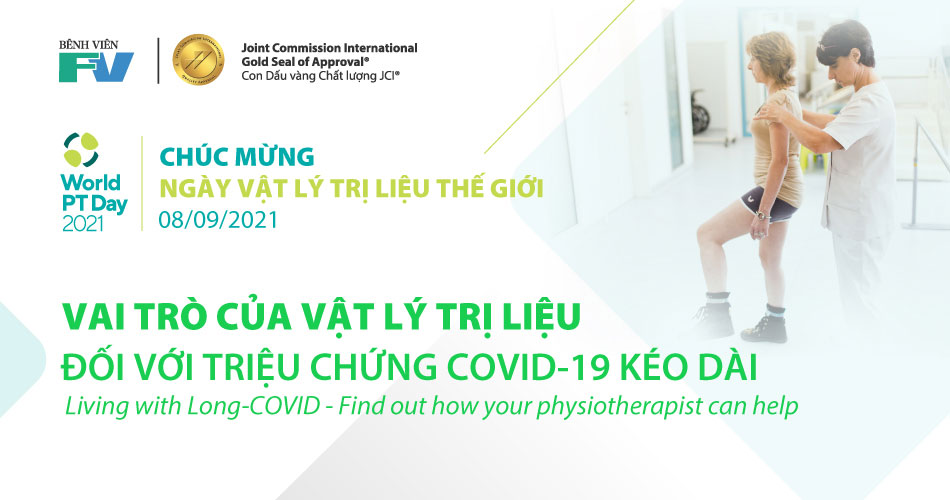Since 1996, the World Confederation for Physical Therapy (WCPT) has designated September 8 every year as World Physiotherapy Day. In 2021, this World Physiotherapy Day is also an opportunity to recognise the hard work and daily dedication of physiotherapists globally by raising public awareness of the significant role that physiotherapy plays during the critical care of COVID-19 patients, and what can often be a long journey to recovery.
This year, the theme selected by WCPT is “Living with Long-COVID – Find out how your physiotherapist can help”. Although most people who contract COVID-19 recover by themselves fairly quickly, in some cases the virus can last a few weeks or months, and patients can experience mild or severe symptoms. As a result, patients experiencing prolonged symptoms have can experience difficulties returning to their daily functional baseline, work or sports activities. The most common symptoms of so-called “long COVID” that can be treated by physiotherapy include shortness of breath, cognitive dysfunction (called “brain fog”), fatigue, muscles soreness and anxiety.

During treatment, a specialised COVID-19 physiotherapist team can assist patients in promoting sputum clearance, enhancing the capacity of their lungs, improving oxygen exchange across membranes, and promoting early mobility.
Simultaneously, another dedicated physiotherapist team might focus on helping recovering patients who have developed ICU-acquired-weakness, perhaps because they were admitted with a life-threatening condition or suffered COVID-19 in combination with another disease, such as chronic obstructive pulmonary disease (COPD), cardiac arrest, hemiplegia (paralysis of one side of the body), or Alzheimer’s Disease.
After being discharged from the hospital, a physiotherapist team dedicated to outpatients with long COVID can help to recover their functional baseline through a cardiopulmonary and muscle training programme, including breathing exercises, muscle workouts and a exercisese and movement to practise at home. Treatment can be implemented face-to-face or via a telemedicine service, often over video call, so that the physiotherapist can monitor the patient’s progress and adjust their tailored programme as needed.
FV’s Physiotherapy and Rehabilitation Department provides a wide range of rehabilitation services for patients of all ages, including inpatients, outpatients, home care, and telerehabilitation services.
FV’s dedicated team comprises physiotherapists and osteopaths who use hands-on and medication-free techniques to help to control pain, restore mobility and function, enhance cardiopulmonary function, prevent falls or musculoskeletal injuries, and also provide palliative care. In addition, the collaborative team offers programmes for back and pelvic disorders, women’s health and perinatal care, newborn care, ergonomics training (an interdisciplinary science that studies the relationship between humans, machines, and the environment), sports optimisation and conditioning. The team also provides assessment, counselling and education programmes.



